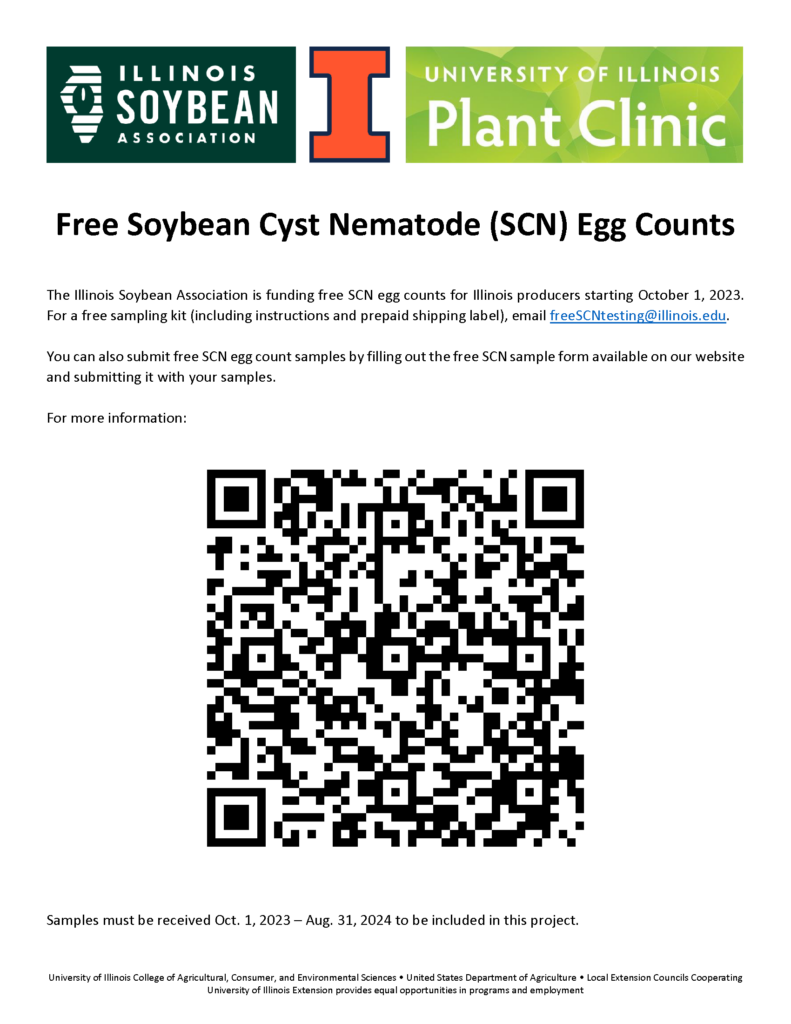The Illinois Soybean Association (ISA) is calling soybean farmers across the state to join the battle against Soybean Cyst Nematode (SCN) by providing free soil sampling to help track and research the largest yield robber in soybeans. ISA announced the check-off funded testing during October, SCN Awareness Month.
Dr. Nathan Schroeder, Associate Professor in the Department of Crop Sciences, studies plant parasitic nematodes such as SCN. The University of Illinois has partnered with the Illinois Soybean Association to understand a baseline population of SCN within Illinois soybean fields. Even though you may have tested for SCN in the past, populations may be increasing because SCN has learned how to adapt to the genetic source of resistance (PI 88788) that farmers have been using over the past 30 years.
Dr. Nathan Schroeder and ISA agronomists say gathering data from across the state is crucial to identify exactly where SCN is attacking and to quantify its impact on soybean crops. They anticipate this research will lead to new ways to overcome resistance in the field. Farmers can scan the QR code for more information, go to the free SCN form available on the U of I Plant Clinic website, or contact freeSCNtesting@illinois.edu to request a free SCN kit with instructions and a prepaid shipping label. Allow the U of I Plant Clinic a few weeks to analyze your soil sample for SCN so that they can provide you with an accurate summary of results.



 and then
and then
A survey of SCN populations and HG types was just recently conducted less than 3 years ago. These data were also already shared with and published by Il soy advisor.
https://apsjournals.apsnet.org/doi/abs/10.1094/PHP-09-22-0092-S
Here’s the previous article. https://fieldadvisor.org/new-research-on-soybean-cyst-nematode-finds-reproduction-on-most-common-resistance-source/
It’s great to offer sampling. We already have baseline data on this disease, but because the disease significantly varies by field it is important to sample more broadly.
We want to continue the survey of SCN populations in 2024 and hopefully beyond. As Dr. Schoeder states in this video, “nematode populations are not standing still” and he wants to get an understanding of how populations are changing. We also know there are many farmers that have not tested for SCN, so they now can get a baseline of SCN populations on their farm.